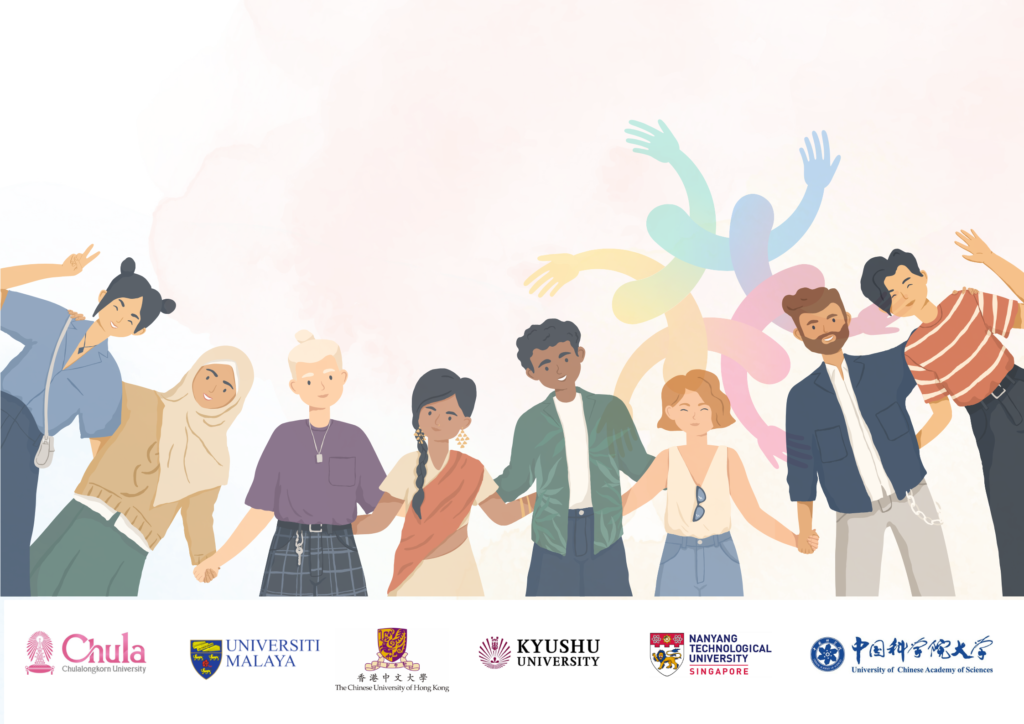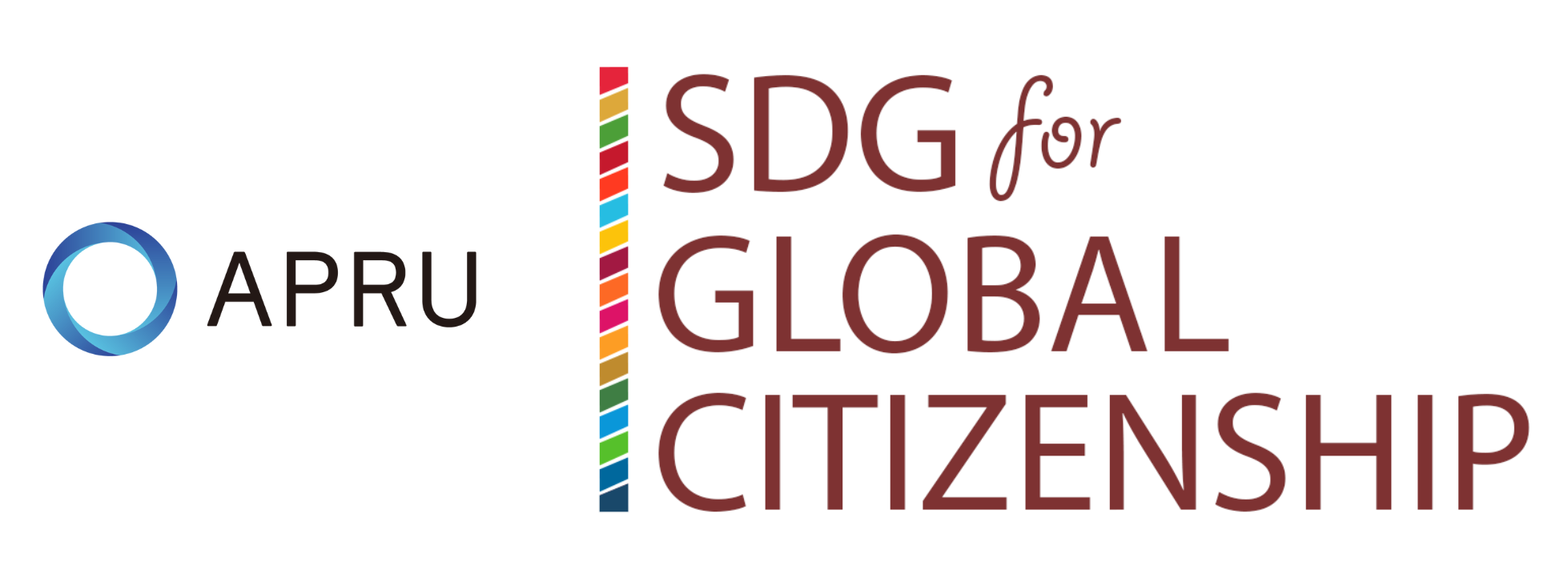About
APRU SDG Education for Global Citizenship: The Program at a Glance
The APRU SDG Education for Global Citizenship (APRU SDG4GC) is an intercultural, transdisciplinary, and interactive program that fosters global citizenship among students from 61 universities in 18 economies across the Pacific Rim. Co-designed by several core-partner universities in collaboration with the United Nations (UN), the program builds knowledge of global issues and global literacy among students. This is achieved through learning about the Sustainable Development Goals (SDGs), exploring in-depth some of the world’s biggest challenges, and proposing solutions using a framework for collaborative development of social innovation prototypes.
The program places critical importance in introducing locally embedded unique case studies among the network members to help students develop a broad array of perspectives and deepen understanding of the SDGs. In the 2025 program, APRU SDG4GC will conduct a hybrid program under the umbrella theme of “Diversity and Inclusivity–Actions for Sustainability” The program will explore the many dimensions of the theme including social, cultural, emotional, spiritual, intellectual, mental, physical, and economic. By drawing on multiple disciplines and practices, the program aims to build a strong sense of global citizenship toward resilient global communities.

The 2025 program is
chaired by Chulalongkorn University
with Universiti Malaya as Vice-Chair.
In partnership with the UN, it is co-designed with the Chinese University of Hong Kong, Kyushu University, Nanyang Technological University, and University of Chinese Academy of Science. The program receives active participation from other institutions including its founding partners—Simon Fraser University, Shanghai Jiao Tong University and may more.
Background
In addition to the challenges of the pandemic during recent years, the world is experiencing increasing conflicts, violence, and injustice. A sense of solidarity in the face of these challenges has brought people from all continents closer together to support each other and work toward better futures. This is creating an unprecedented momentum for global-level societal transformation. It is in this context that a core group of six APRU member universities launched the APRU SDG4GC in 2022 to open a new avenue of international engagement for students and faculty members working with multiple stakeholders in society. As key institutions of higher learning, universities have a clear responsibility to nurture inclusive culture and respect for diversity. This is even more critical today, when the world is undergoing dynamic transitions that demand the resolution of interconnected challenges. The unique network of APRU has been harnessed to cultivate new intercultural, international, and transdisciplinary learning opportunities for participating students, exposing them to a diverse range of cultures and practices. The program has also encouraged active learning initiatives by students themselves through mentorship activities.
Students will
- develop a broad array of perspectives and deepen their understanding of the Sustainable Development Goals (SDGs) through the involvement of unique case studies from APRU network members.
- develop and understanding of SDG3 (Good Health and Wellbeing) and SDG16 (Peace, Justice and Strong Institutions) and larger societal issues faced by their own communities and comparatively, across other communities represented in the cohort.
- gain in-depth knowledge, wisdom and inspiration from actors on the ground in Malaysia or Thailand via onsite community engagement.
- develop ethical understanding and practices of community-engaged research.
- develop skills and understanding of design thinking and social innovation as a tool to design and prototype a new initiative to address a community challenge.
- develop intercultural communication, research, coordination, and presentation skills by learning and working together with a diverse group of students and mentors.
Program
The program introduces locally embedded unique case studies from the network members to
- foster global citizenship via SDG education/learning.
- provide new intercultural, international, and transdisciplinary learning opportunities for the participants.
- co-create knowledge for sustainability via multi-stakeholder engagements, including UN linkages.
- build knowledge of global issues and global literacy among students.
